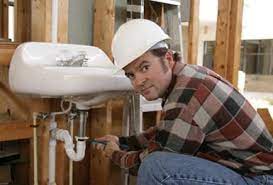Plumbing, often considered a behind-the-scenes operation in our daily Ted’s Plumbing in Roseville, CA lives, is an essential component of modern civilization. It’s a craft that connects our homes and cities with vital resources—water and gas—and ensures proper sanitation. Yet, plumbing’s impact goes far beyond fixing leaks or unclogging drains. It’s an ancient trade, a sophisticated engineering marvel, and an essential service that influences health, hygiene, and even the structure of cities.
A Brief History of Plumbing
The history of plumbing is as old as civilization itself. Evidence of primitive plumbing systems dates back to ancient civilizations like the Egyptians, Greeks, and Romans. The Indus Valley Civilization, one of the earliest, had complex drainage systems that rival some of today’s setups. Ancient Romans famously designed aqueducts to supply water to cities and developed public baths and sanitation systems that were marvels of engineering in their time.
Fast forward to the modern era, and the basic principles of plumbing remain the same: to move water, ensure clean water delivery, and manage waste. However, the technology and materials have evolved significantly. From terracotta pipes to modern PVC and copper, plumbing has adapted to serve ever-growing populations and increasingly complex infrastructure.
The Backbone of Public Health
Plumbing’s most significant contribution to society is arguably public health. Access to clean drinking water and effective sewage systems are critical for preventing the spread of diseases. Before modern plumbing systems were widespread, communities often suffered from waterborne illnesses like cholera and typhoid, which spread rapidly through contaminated water supplies. The development of efficient plumbing systems, along with water treatment, has been key in eradicating many of these once-common diseases.
In developing countries, improving plumbing infrastructure is still a critical public health issue. Access to basic sanitation can dramatically reduce child mortality rates and improve quality of life, showing that plumbing is not merely a convenience but a necessity for survival and well-being.
Plumbing Technology: More Than Meets the Eye
To most, plumbing may seem like a simple system of pipes carrying water to and from a home or building. But the truth is far more intricate. Today’s plumbing incorporates advanced technology that enhances efficiency, conserves resources, and ensures safety.
- Smart Plumbing Systems: In recent years, smart plumbing solutions have emerged, allowing homeowners to monitor water usage, detect leaks, and control water heaters remotely. Smart sensors in pipes can alert homeowners to issues before they escalate, preventing damage and conserving water. These innovations align with the growing trend toward “smart homes.”
- Water Conservation: With growing concerns about sustainability, modern plumbing fixtures like low-flow faucets, dual-flush toilets, and tankless water heaters help conserve water. In some regions, systems that recycle greywater (water from sinks and showers) are being implemented to reduce waste further.
- Energy Efficiency: Plumbing is also playing a role in energy efficiency, particularly in heating water. Innovations such as solar water heaters and heat pump water heaters can significantly reduce energy consumption. Plumbing professionals are key players in making homes more eco-friendly, as they are often the ones installing and advising on these technologies.
Challenges in the Industry
While the plumbing trade has advanced, it faces several challenges in today’s world.
- Aging Infrastructure: Many cities, particularly in older parts of the world, are dealing with aging plumbing infrastructure. Old pipes, often made of lead or outdated materials, can pose health risks. Replacing these systems is costly and time-consuming but necessary to ensure safe water supplies.
- Skills Shortage: Plumbing, like many trades, is experiencing a skills shortage. As older generations of plumbers retire, fewer young people are entering the field. This gap presents an opportunity for new tradespeople to enter a profession that offers stability, hands-on work, and the chance to make a tangible difference in people’s lives.
- Environmental Concerns: The plumbing industry is increasingly focusing on sustainable practices to meet the demands of a planet facing climate change. From installing eco-friendly fixtures to reducing water waste in large commercial buildings, plumbers are at the forefront of the environmental sustainability movement.
Plumbing in Everyday Life
For most people, plumbing is only noticed when something goes wrong—a dripping faucet, a blocked toilet, or a mysterious leak in the ceiling. Yet, it’s plumbing that allows us to enjoy modern conveniences we often take for granted, like hot showers, clean drinking water, and the safe disposal of waste.
A skilled plumber can diagnose issues, install complex systems, and ensure everything is functioning smoothly. It’s a profession that requires knowledge of physics

